Knowledge Building Design Studio 2023: Sustainability
On 16 and 17 October 2023, the 8th cycle of the Knowledge Building Design Studio (KBDS) was successfully conducted. Themed “Sustainability”, it was a unique opportunity for students, teachers, and researchers to explore real-world sustainability challenges.
A total of 35 students from St Hilda’s Primary School, Fairfield Methodist Primary School and Pioneer Primary School came together to refine their knowledge and think about sustainability. Accompanying the students were their teachers, who were actively engaged in their professional development in the Knowledge Building Pedagogy while observing their students' knowledge advancement.
The teams, consisting of students from different schools, were formed based primarily on their initial interest as expressed during the pre-engagement session prior to the event. With the guidance of their facilitators and through meaningful interactions with researchers and experts across various disciplines, the students had the chance to collaboratively co-construct knowledge and, as a result, produce practical and valuable artefacts.
We were privileged to have Dr Lydia Cao as one of our experts, whose contributions in EarthXDesign enabled the students to reevaluate their initial comprehension of sustainability issues. This conceptual framing served as the cornerstone for delving into the technical aspects of the Internet of Things (IoT), with valuable guidance from Dr Alwyn Vwen Yen Lee, Education Research Scientist from the Centre for Research in Pedagogy and Practice (CRPP).

Main Design of the KBDS
A new format was used to kick off the sessions. KBDS was divided into two phases: the pre-engagement and the on-site engagement. During the pre-engagement phase, students received essential training on Knowledge Forum (KF) and, concurrently, were encouraged to explore sustainability issues in their surroundings using an innovative card game developed by Dr Tricia and her team at the Sustainability Learning Lab. The card game proved to be exceptionally captivating, with students even inquiring about the possibility of obtaining their own sets! This set the stage for diverse student interests, and their subsequent contributions on KF were leveraged to facilitate interest-driven grouping, thereby enhancing student agency.
.png?sfvrsn=f243c01e_1)
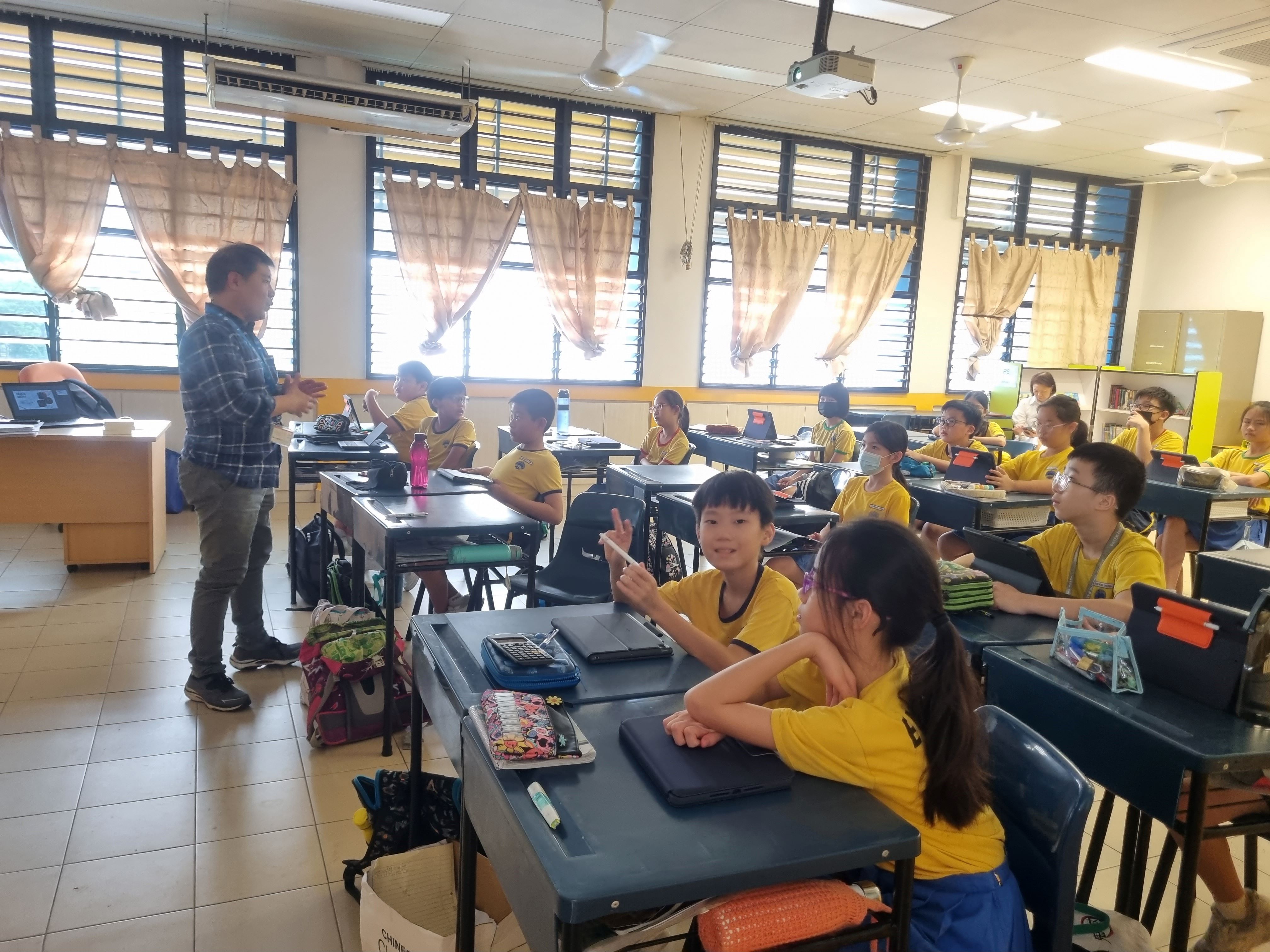
The on-site experience for this iteration commenced with an icebreaker, 'Would you rather?'. The icebreaker prompted students to move around the classroom, choosing their preferred environmentally sustainable behaviours.
Campus Tour
In their respective groups, students were led on an eco-trail campus tour around NIE, enabling them to explore various sustainability features.
The campus tour included four specifically curated venues namely, the raingarden, a tutorial room, solar panel site, flume table room. Each location represented a feature adopted by NIE over the years of which some had also allowed the campus to clinch the GreenMark Platinum in 2012, 2017, 2022.
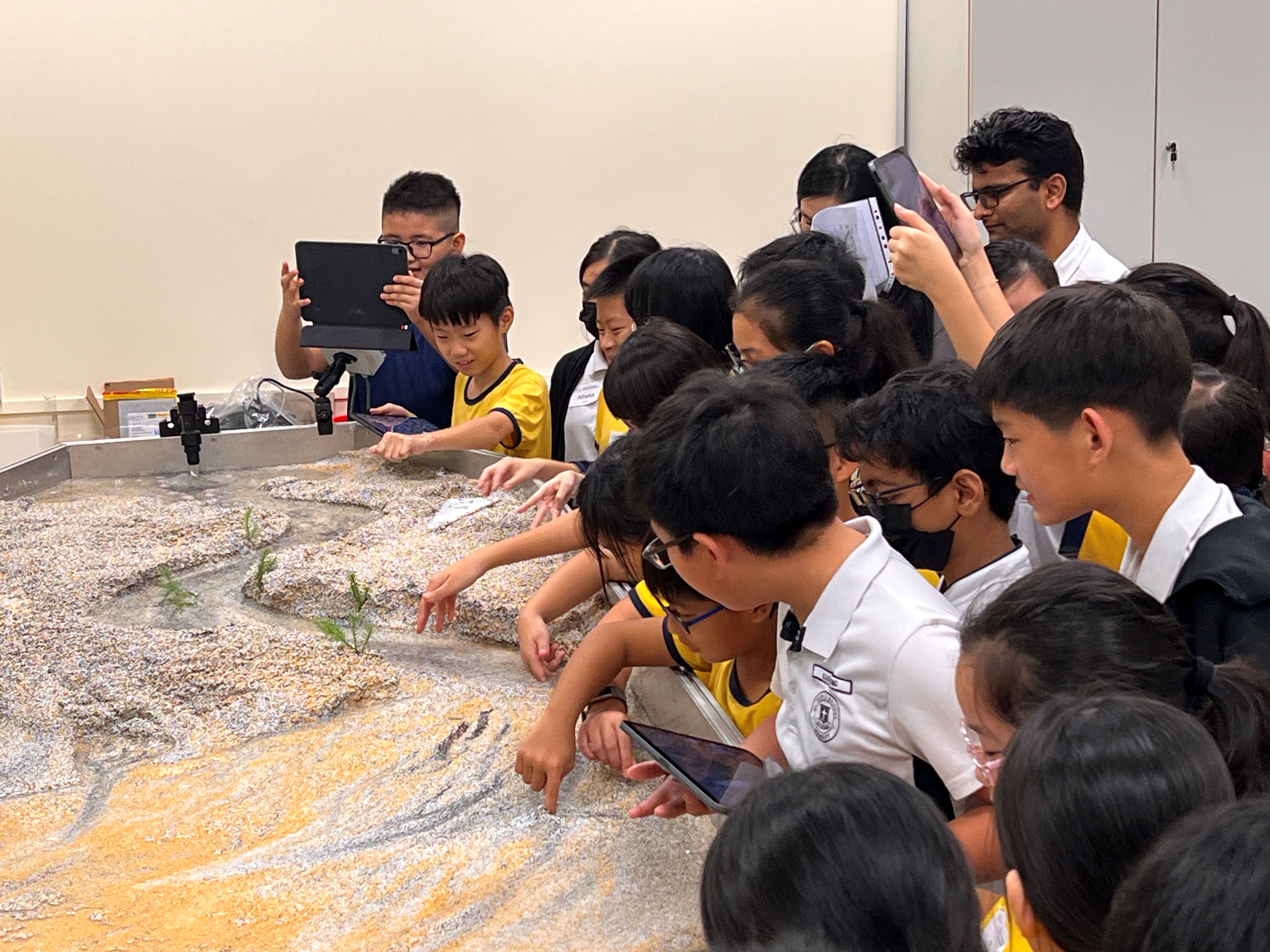
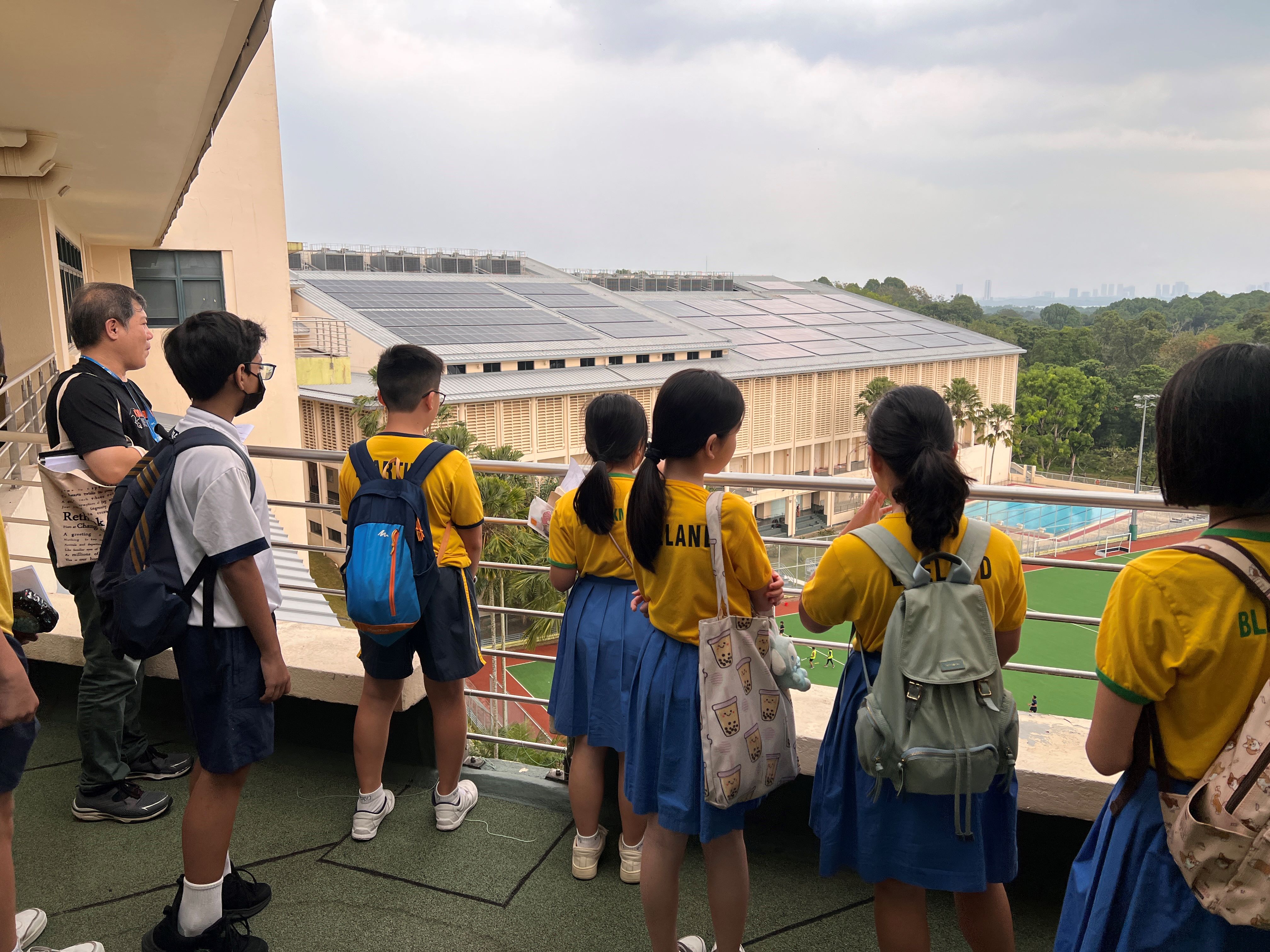
The eco trail featured four specially curated locations, namely, the raingarden, a tutorial room, solar panel site, and the flume table in the Sustainability Learning Lab. Facilitators led the participants, serving as guides to both inspire new ideas and provide guidance on the questions that students would later input into the Knowledge Forum (KF).
The tour culminated in the NIE library, where a VR showcase was arranged. Additionally, extra stations, such as the hockey pitch and waste management facilities within NIE, were incorporated to enhance the VR experience. A mobile version was also made available for ongoing reference throughout the duration of KBDS. (You can still access it at: https://tinyurl.com/kbdsecotrail)
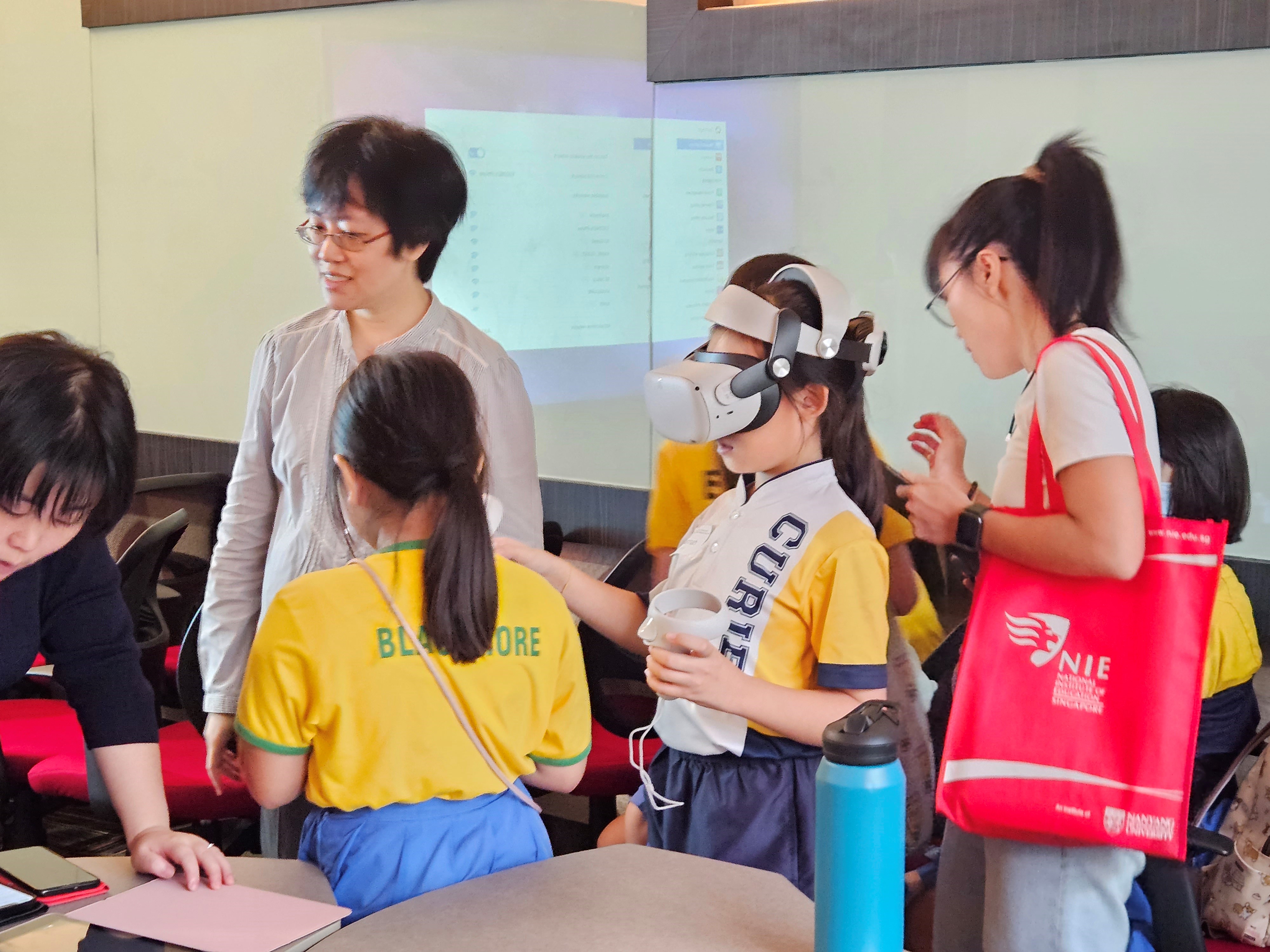
Expert Sharing on EarthXDesign by Dr Lydia Cao
To enhance the students' knowledge acquisition, we had the privilege of hosting Dr Lydia via Zoom. Dr Lydia is a Postdoctoral Fellow at the Harvard Graduate School of Education, with her research focusing on the convergence of innovative design, climate consciousness, and the potential of technology. During her session, students not only received valuable information but, more importantly, gained a fresh perspective on sustainability issues and the diverse design possibilities EarthXDesign offers. EarthXDesign promotes an 'Earth-Centric' and 'Earth-Centered' design approach, diverging from the conventional 'Human-Centric' standpoint in addressing sustainability solutions. Driven by a set of scaffolds tailored for primary school students, they had the opportunity to reassess existing solutions and brainstorm alternative designs.
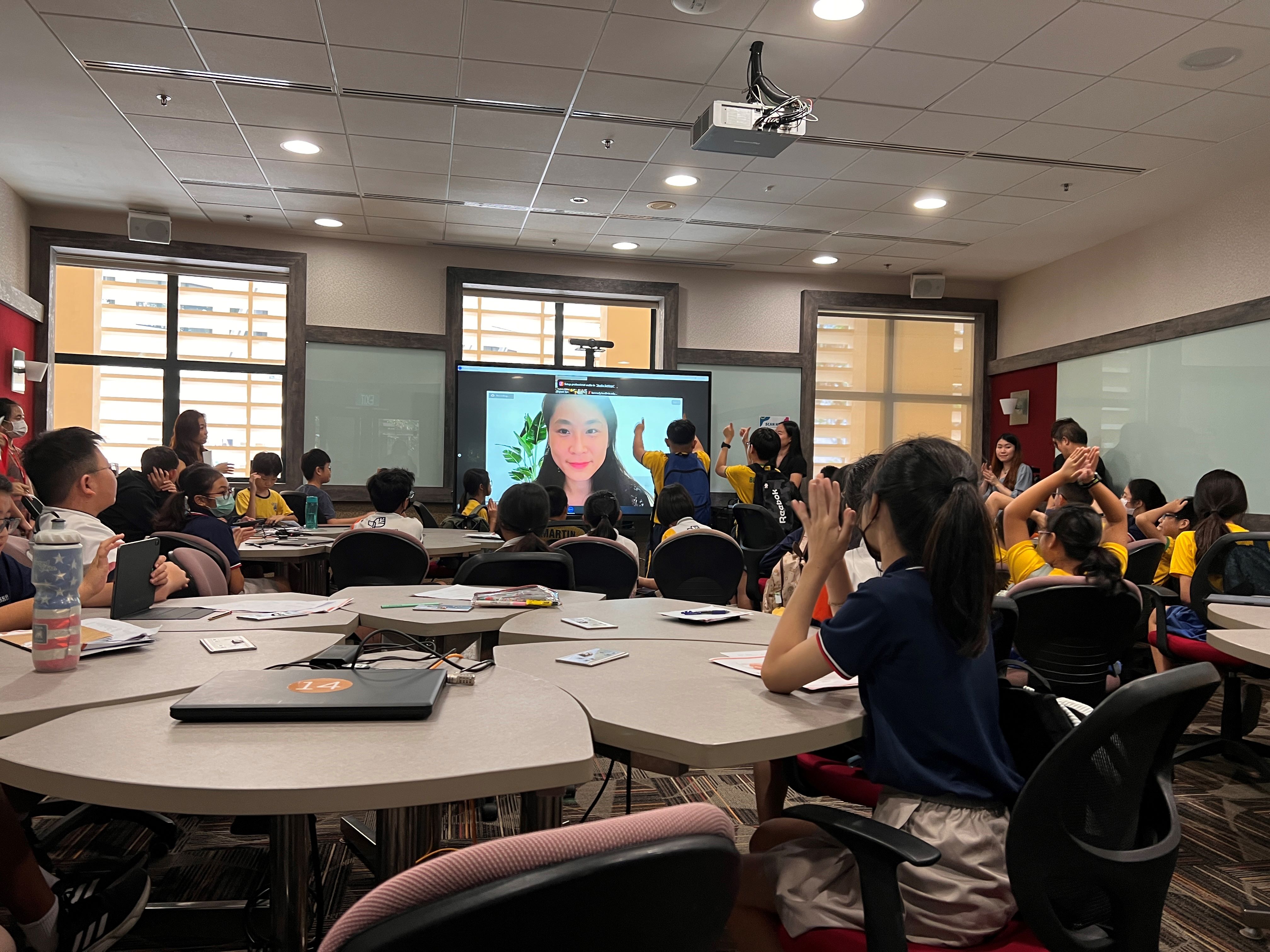
Expert Sharing on Internet of Things by Dr Alwyn Lee
For this particular session, we took great pride in having the expertise and support of Dr Alwyn Lee. Dr Lee has over 12 years of experience in both industrial and educational research, with a specific focus on Artificial Intelligence in Education and knowledge building. During his segment, he introduced the Internet of Things (IoT), which refers to a network of interconnected devices and sensors designed for data sharing. To make this complex concept more accessible to young minds, these devices were streamlined into a user-friendly, plug-and-play format. The IoT devices became the foundation for the data collection experience, with students allocated time to collect data at the various locations they had previously visited. Interestingly, these IoT devices also had the potential to become integral components of their final solutions, with some groups even using them in their designs.
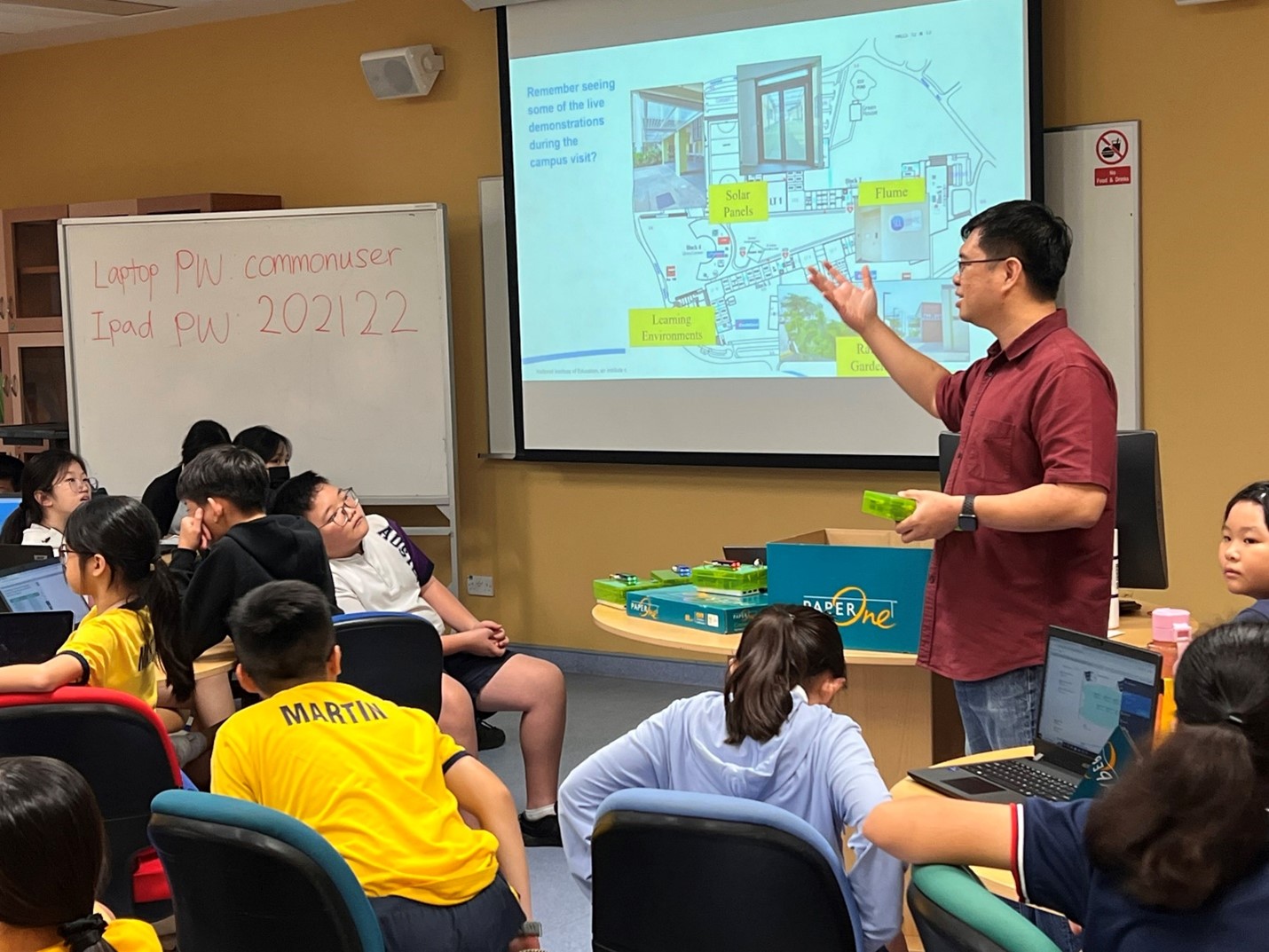
These two experts played a vital role in facilitating the knowledge-building process for student participants, bridging the conceptual framing of EarthXDesign and the practical application of IoT devices.
Small Group Sessions
In addition to the community-level activities, the various groups had ample time over the course of two days to collaborate and build knowledge within their own groups. Some teamwork were also infused into the programme to build synergy between the students from different schools.
With the help of the facilitators, who brought extensive experience to the table, participants were directed to bridge their cognitive efforts with the finalisation of their product artefacts.
Co-create A Journey of Thinking to Synthesise the Learning Progress
Like previous KBDS, students shared in their group views, pursuing an in-depth understanding of their inquiry. Dr Katherine Guangji Yuan, Education Research Scientist at CRPP played a pivotal role in providing students with more personalized guidance in metacognition. She employed a probing approach, delving deep into their thought processes, with different groups collaboratively authoring a reflection note called the 'Journey of Thinking' (JOT). The JOT facilitated students in synthesising ideas and rising above in KF through the specifically curated scaffolds. Time was also provided to ensure a build on of various ideas as students respond to their peers’ comments or write about what they have learnt.
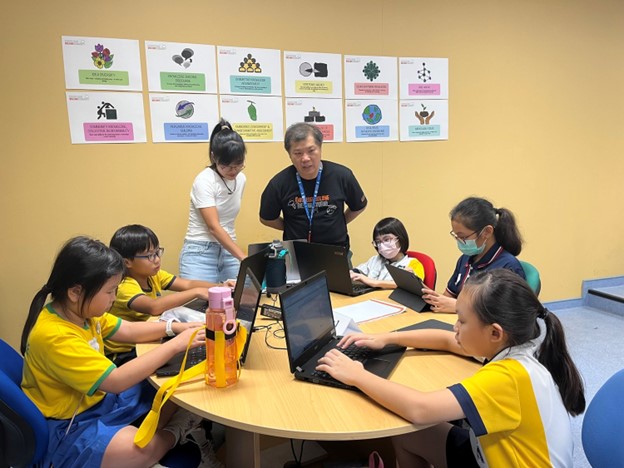
Student Presentations & Gallery Walk
In their groups, students created artefacts that highlighted their understanding of their design solution to the Sustainability issue that was selected for the group. A variety of design solutions materialised and these were also presented to the community. The school teachers from the respective schools also actively participated in the gallery walk, engaging with various student groups.
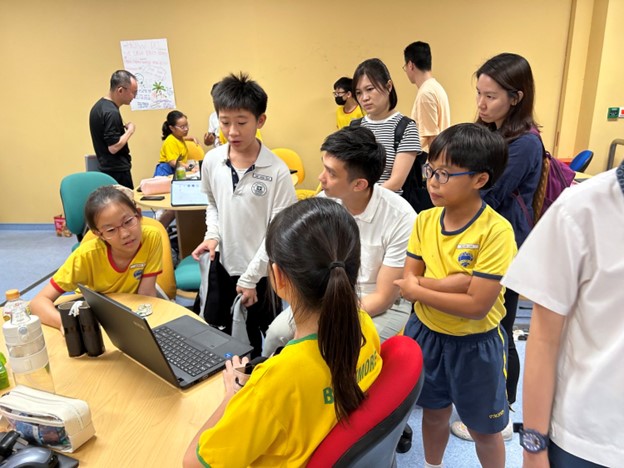
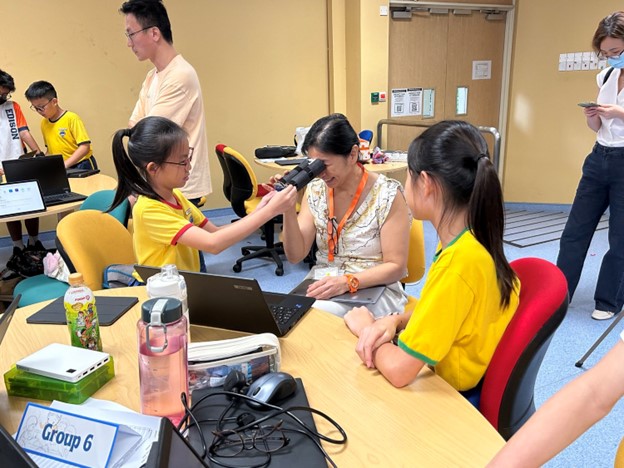
Meta Talk
Another common feature of KBDS is the metatalk segment. Guided by Dr Katherine Yuan and Dr Teo Chew Lee, students were asked some questions to reflect further on their ideas and knowledge building understanding with the community. It was also heartening to hear students express their reasons for the solutions to have been an opportunity to “save the animals”. This shift in perspective effectively demonstrates their commitment to sustainable solutions that benefit not only humans but also the broader ecosystem, embracing the perspective of 'Earthlings'.
Moving Forward
In this edition of KBDS, students actively engaged in knowledge building, highlighting the potential of young minds to improve ideas and unleash their creativity in solving sustainability problems. As the future inheritors of this Earth that we call home, we believe this design studio will set in motion a new shift not just in the solutions of sustainability but also in the understanding of building knowledge.














/enri-thumbnails/careeropportunities1f0caf1c-a12d-479c-be7c-3c04e085c617.tmb-mega-menu.jpg?Culture=en&sfvrsn=d7261e3b_1)

/cradle-thumbnails/research-capabilities1516d0ba63aa44f0b4ee77a8c05263b2.tmb-mega-menu.jpg?Culture=en&sfvrsn=1bc94f8_1)

7e6fdc03-9018-4d08-9a98-8a21acbc37ba.tmb-mega-menu.jpg?Culture=en&sfvrsn=7deaf618_1)

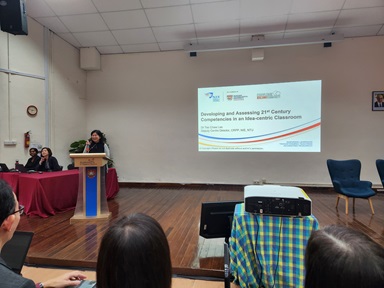
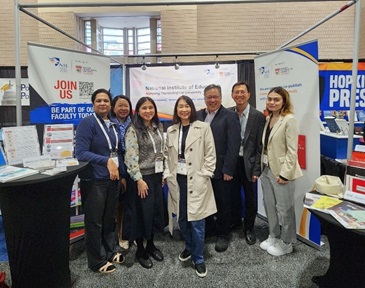
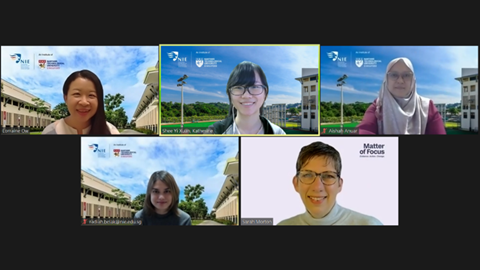
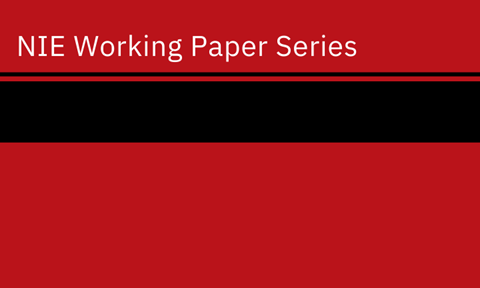
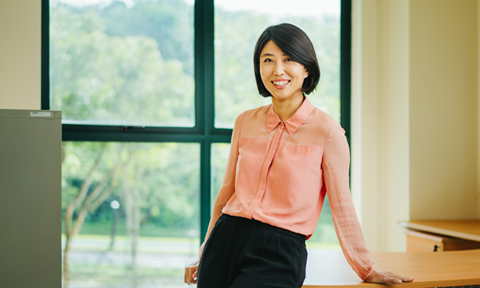
.tmb-listing.jpg?Culture=en&sfvrsn=2b123388_1)